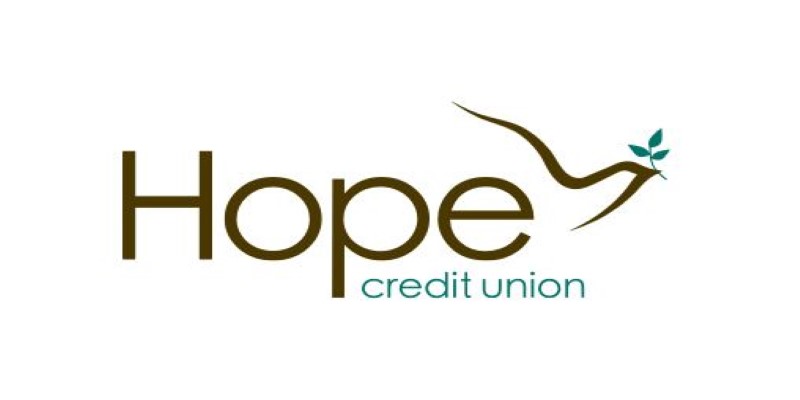How Proof of Charitable Donations Works and Why It's Essential for Tax Deductions
Dec 11, 2024 By Triston Martin
Charitable donations can be a great way to support causes you care about while also providing potential benefits for your taxes. But in order to take advantage of tax deductions for your charitable contributions, you need to be able to prove that you made them. This is where proof of charitable donations comes into play. Whether youre donating money, goods, or services, having the right documentation is key to ensuring that your donations count for tax purposes.

In this article, we will detail proof of charitable donations, why one needs it, and how one records their contributions properly. Whether you are a seasoned donor or just starting to explore charitable giving, you want to know how to keep tabs on your contributions so you don't miss out on the valuable tax deductions involved.
What Is Proof of Charitable Donations?
One of the reasons you would give proof of charitable donations is because you want to get a tax deduction. You'd actually be surprised that the Internal Revenue Service requires you to have documentation showing your contributions. Without it, you cannot reduce your taxable income, therefore losing money on your tax return. As such, your donations could either be cash, checks, property, or volunteer hours, and the type and amount of proof you need are determined by the same. Cash donations usually require bank statements and credit card records, among others, while a charity receipt may suffice for checks. Non-cash contributions, which include donations of things to thrift stores, require itemized receipts that include descriptions
of the item. Following IRS guidelines for each type of donation ensures your records are sufficient and can help avoid complications if the IRS requests verification. Thorough, accurate documentation maximizes your ability to claim deductions and protects against potential audits.
Why Is Proof of Charitable Donations Important?
The actual value of proof for charitable donations is to let the tax deductions on donations. This is because if your donation goes to a qualified charity, you may have a reduction in your taxable income with regard to the amount of that donation. Ultimately, it means an overall reduction in tax liabilities.

However, without proof of the donation, the IRS may disallow your deduction, which could lead to penalties or an audit. This is especially important during tax season when the IRS is reviewing donations and tax returns. A lack of proper documentation could delay your refund or even cause your entire donation to be rejected. Therefore, keeping accurate records of your donations is not just a good practiceits a necessity.
Moreover, proper documentation helps protect you in the event of an audit. While audits are relatively rare, they do happen. Being prepared with solid proof of your donations can save you a lot of time and stress should you be asked to provide additional information.
How to Document Charitable Donations Properly
Properly documenting your charitable donations isnt difficult, but it does require attention to detail. Here are some key steps you should follow when tracking and documenting your donations:
Cash Donations:
For cash donations over $250, obtain a receipt from the charity that includes the amount, date, and charity name. For smaller donations, bank or credit card statements can also serve as proof. For online donations, save the confirmation emails or payment receipts. Proper documentation ensures your donations qualify for tax deductions and protects you in case the IRS requests proof.
Non-Cash Donations:
For non-cash donations, get a receipt detailing the items donated. The IRS requires an estimated fair market value (FMV) for your donations. For donations over $500, complete IRS Form 8283. For donations over $5,000, a professional appraisal may be required. Keeping a detailed list of items and their values ensures you can substantiate your claim if questioned by the IRS.
Volunteer Hours and Expenses:
Volunteer time is not deductible, but out-of-pocket expenses are. Track expenses like mileage or supplies and keep receipts. For mileage, note the number of miles driven for charity work and use the IRS's standard rate to calculate deductions. Detailed logs of expenses help you properly claim these costs on your taxes. Remember to document everything thoroughly to ensure you maximize your tax savings.
Receipts and Written Acknowledgments:

Always request a receipt or written acknowledgment for donations. For donations over $250, the charity must provide a statement with the donation amount, date, and any goods or services received in exchange. This documentation is crucial for substantiating your tax deductions and protecting against potential audits. Keep these receipts organized for easy access during tax filing, ensuring you meet IRS documentation requirements.
Common Mistakes to Avoid
While documenting charitable donations is relatively straightforward, there are some common mistakes that people often make when tracking their contributions. Here are a few things to watch out for:
Failure to Get Written Acknowledgment: The IRS requires written acknowledgment for any donation over $250. Failing to get this acknowledgment can lead to your donation being disqualified.
Overestimating the Value of Non-Cash Donations: Its tempting to claim a higher value for donated items, especially when donating household goods. However, the IRS requires that donations be valued based on fair market value, and overestimating the value can trigger an audit or penalty.
Not Keeping Detailed Records: Keep thorough records for every donation, no matter how small. The more detailed your records are, the less likely youll face complications if the IRS ever asks for more information.
Conclusion
Proof of charitable donations is a critical part of maximizing the benefits of your charitable contributions, especially when it comes to tax deductions. Whether you're donating cash, goods, or services, keeping accurate and thorough documentation is essential to ensure that your donations count toward reducing your taxable income. By following the IRS guidelines for documenting donations, you can avoid the risk of losing out on tax deductions or facing issues during an audit. Keep good records, get the necessary receipts, and be sure to report everything accurately. You'll be able to enjoy the financial and emotional benefits of charitable giving without any unnecessary complications.








